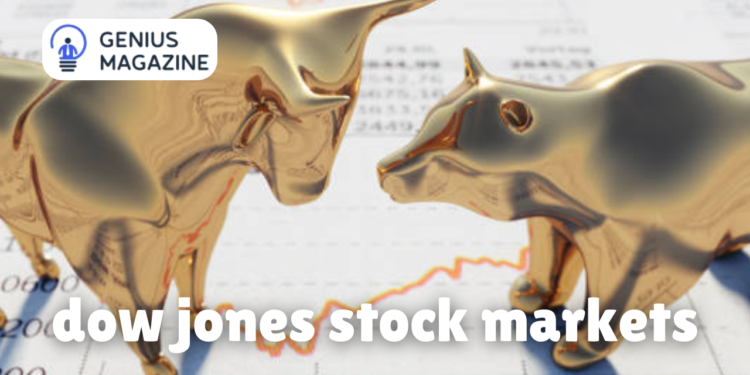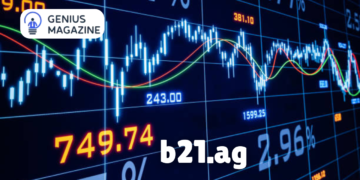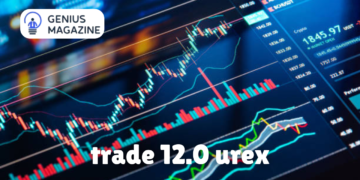The Dow Jones Stock Market is a pivotal component of global finance. As a crucial barometer for U.S. economic health, it influences the decisions of investors, traders, and policymakers alike. This article explores the Dow Jones Stock Market’s significance, composition, calculation, and impact to provide a thorough understanding of its role in investing.
What Is the Dow Jones Stock Market?
The Dow Jones Stock Market is represented by the Dow Jones Industrial Average (DJIA), one of the most widely followed stock market indices globally. Comprising 30 large, publicly traded companies across diverse sectors, the DJIA offers a snapshot of the stock market’s overall performance. Investors and analysts closely monitor the Dow because it is an indicator of the health of the U.S. economy.
Unlike other indices, the Dow is a price-weighted index, meaning the stock prices of the constituent companies influence the index. This characteristic distinguishes it from indices like the S&P 500, which is market-cap weighted.
Components of the Dow Jones Stock Market
The Dow Jones Stock Market comprises 30 of the most influential companies on the New York Stock Exchange (NYSE) and the Nasdaq. These companies span multiple sectors of the economy, including technology, finance, consumer goods, and healthcare. For example:
- Apple and Microsoft represent the tech sector.
- Goldman Sachs and JPMorgan Chase reflect the financial industry.
- Coca-Cola and Nike symbolize consumer goods.
These companies are carefully chosen for their stability, influence, and impact on the broader economy. Their collective performance drives the movement of the Dow Jones Industrial Average, making it a reliable gauge for assessing the health of the U.S. stock market.
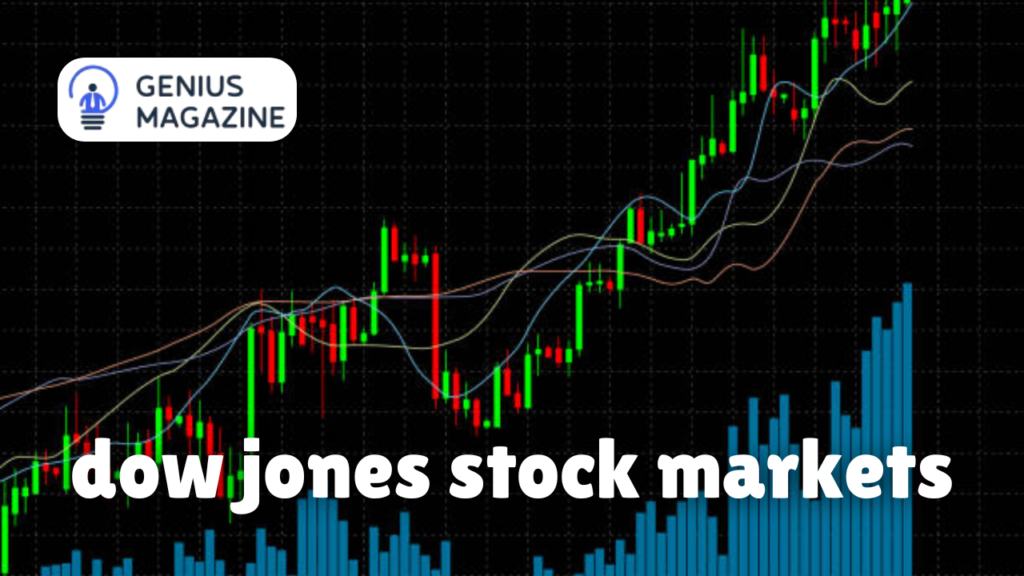
Why Is the Dow Jones Stock Market Significant?
The Dow Jones Stock Market serves as a critical gauge of the overall economic health of the U.S. It provides insights into the performance of large companies that are significant players in global markets. When the Dow moves up or down, it reflects investor sentiment regarding the economic outlook.
Furthermore, the Dow Jones Stock Market is often seen as a leading indicator of broader economic trends. A rising Dow suggests investor confidence and optimism about future growth, while a declining Dow may signal concerns over economic challenges.
How Is the Dow Jones Stock Market Calculated?
The Dow Jones Stock Market is calculated by adding up the stock prices of its 30 component companies and dividing this total by a divisor. The divisor is adjusted periodically to account for stock splits, dividend payouts, and other corporate actions, ensuring that the changes in stock prices are accurately reflected.
Since the index is price-weighted, stocks with higher share prices influence the Dow’s movement more. For example, if a high-priced stock like Apple increases in value, it will significantly impact the Dow Jones Stock Market more than a smaller-priced stock, even if the latter sees a more significant percentage change.
Tracking the Dow Jones Stock Market
Financial websites such as Google Finance, Yahoo Finance, and MarketWatch offer real-time updates to track the Dow Jones Stock Market’s current performance. These platforms allow investors to monitor the Dow’s performance throughout the day and understand how the broader market moves.
Financial news outlets like CNBC and Bloomberg continuously update the Dow Jones Stock Market, offering valuable context on market fluctuations and trends.
The Dow Jones Stock Market and Investment Strategy
Investors often use the Dow Jones Stock Market as part of their investment strategies. By observing the movements of the DJIA, they can gauge whether the market is trending positively or negatively. However, it’s essential to remember that the Dow is just one of many stock market indices and does not represent the complete picture of the economy.
As with any investment, the Dow Jones Stock Market has risks. Past performance is not indicative of future results, and market conditions can change rapidly. Therefore, investors must consider the Dow Jones Stock Market alongside other indicators when making decisions.
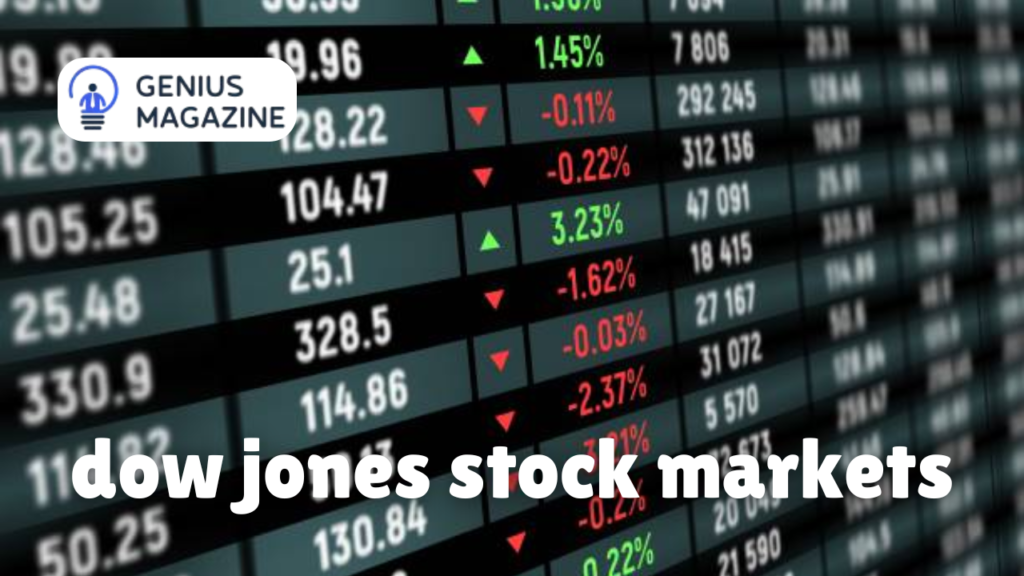
Is the Dow Jones Stock Market a Reliable Indicator?
While the Dow Jones Stock Market is widely regarded as a significant indicator of the U.S. economy, it has limitations. Its price-weighted nature means high-priced stocks influence it more than the overall market. Additionally, it only includes 30 companies, which may not fully reflect the broader economic landscape. Investors should consider other indices, like the S&P 500 or the Nasdaq, to gain a more comprehensive view of the market.
Also Read : Hamro Solar LLC: A Beacon of Solar Innovation
In conclusion, the Dow Jones Stock Market is vital in shaping the financial landscape. By understanding its composition, calculation, and significance, investors can make more informed decisions and better navigate the complexities of the stock market. Whether you are a seasoned investor or a beginner, the Dow Jones Stock Market provides essential insights into the economy’s direction and major U.S. companies’ performance.




























